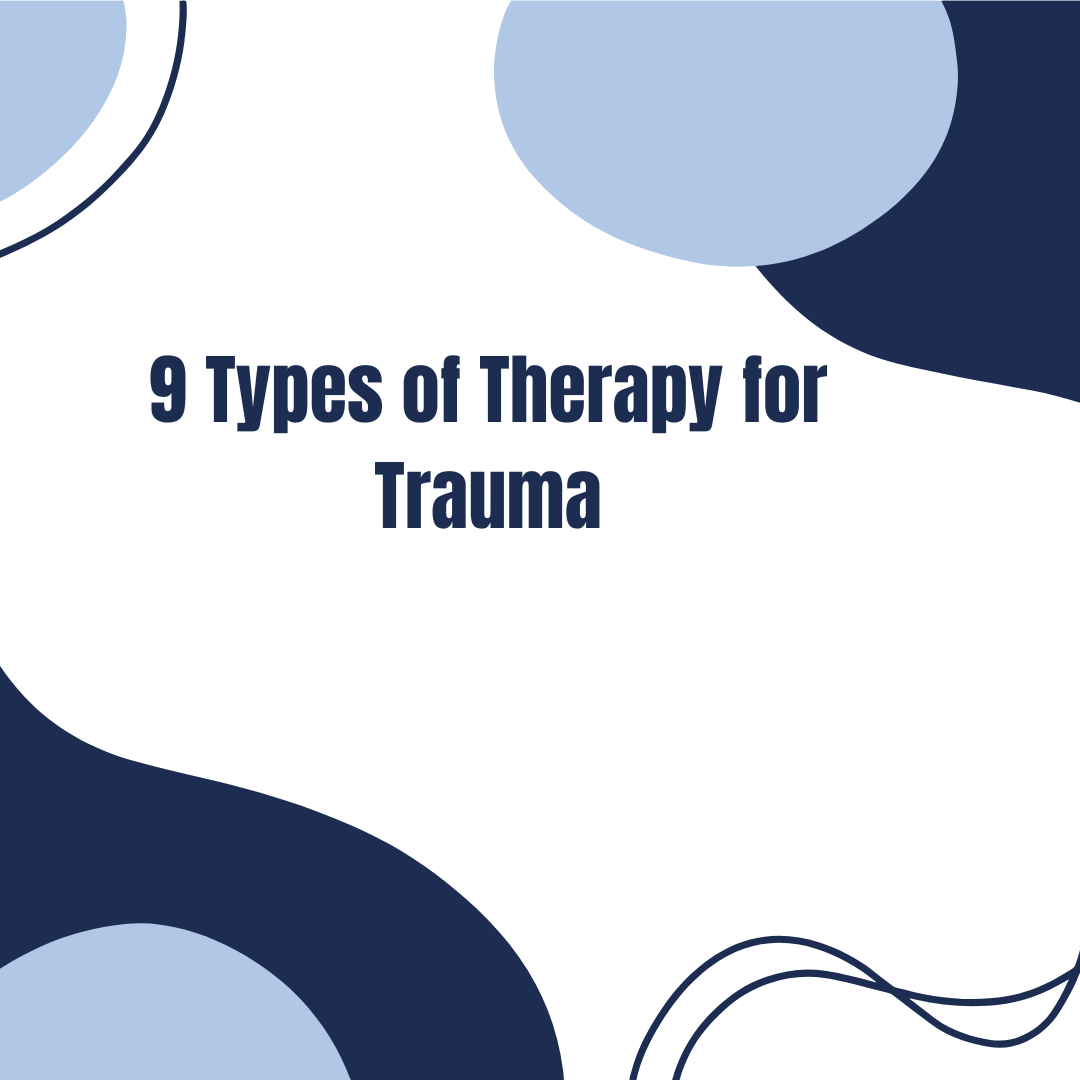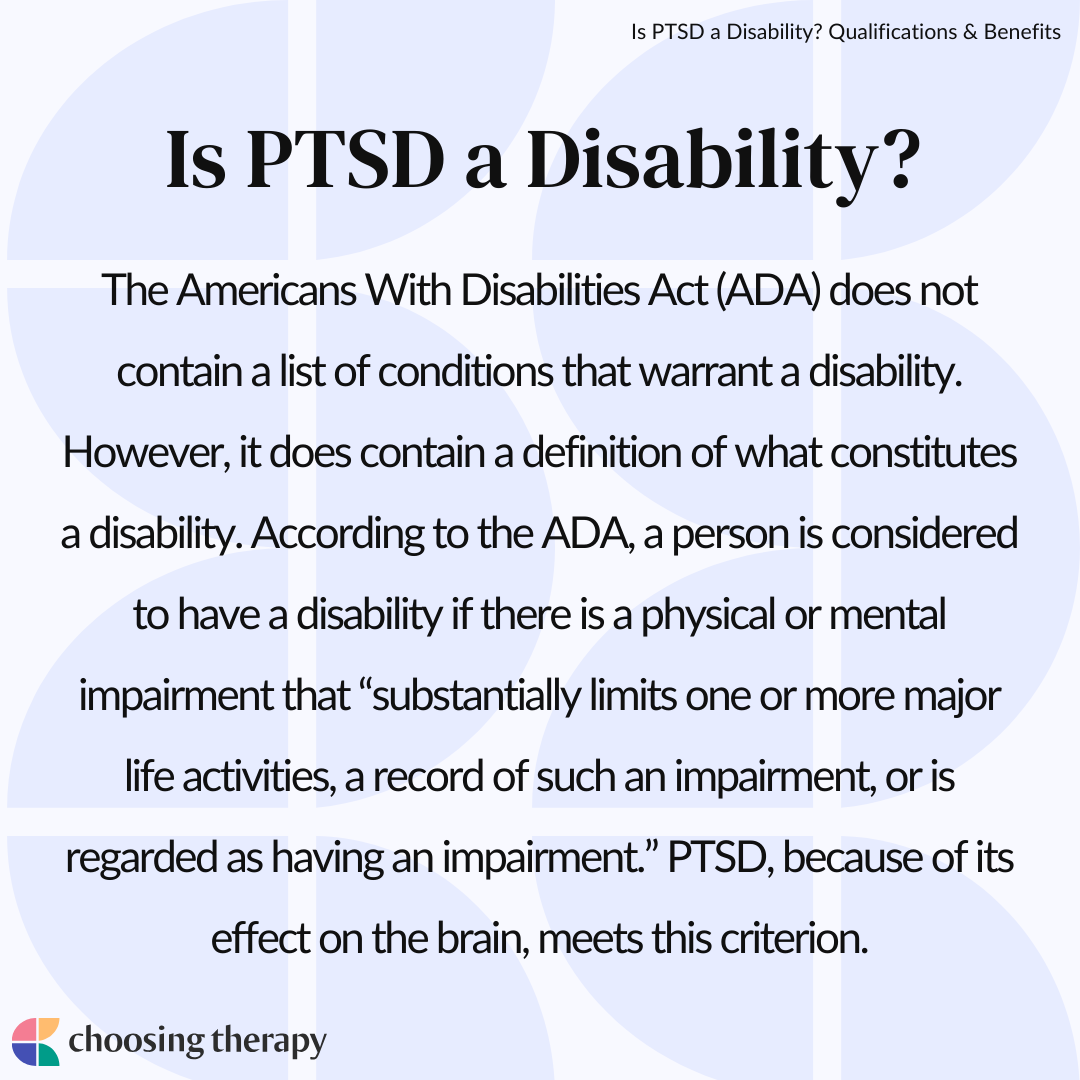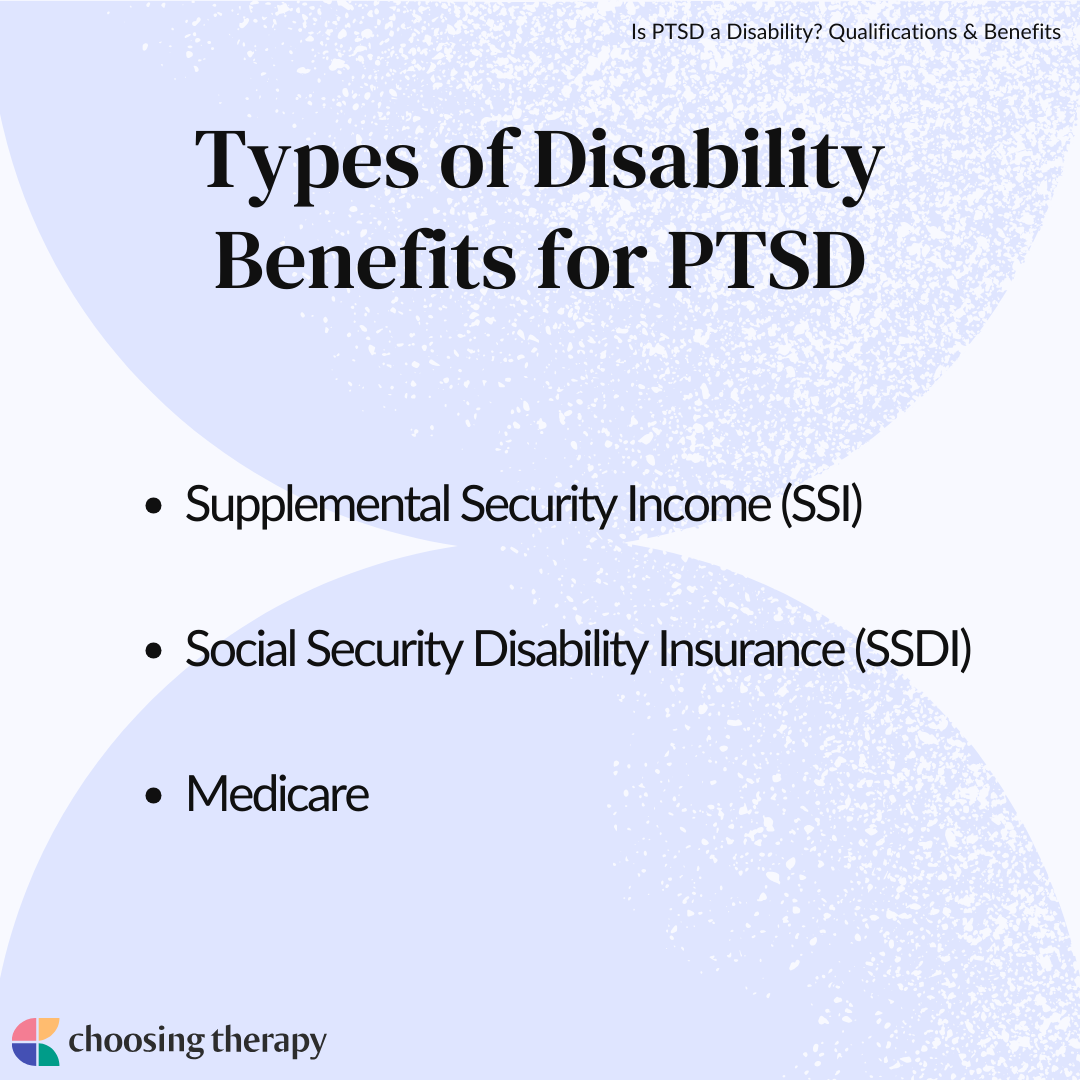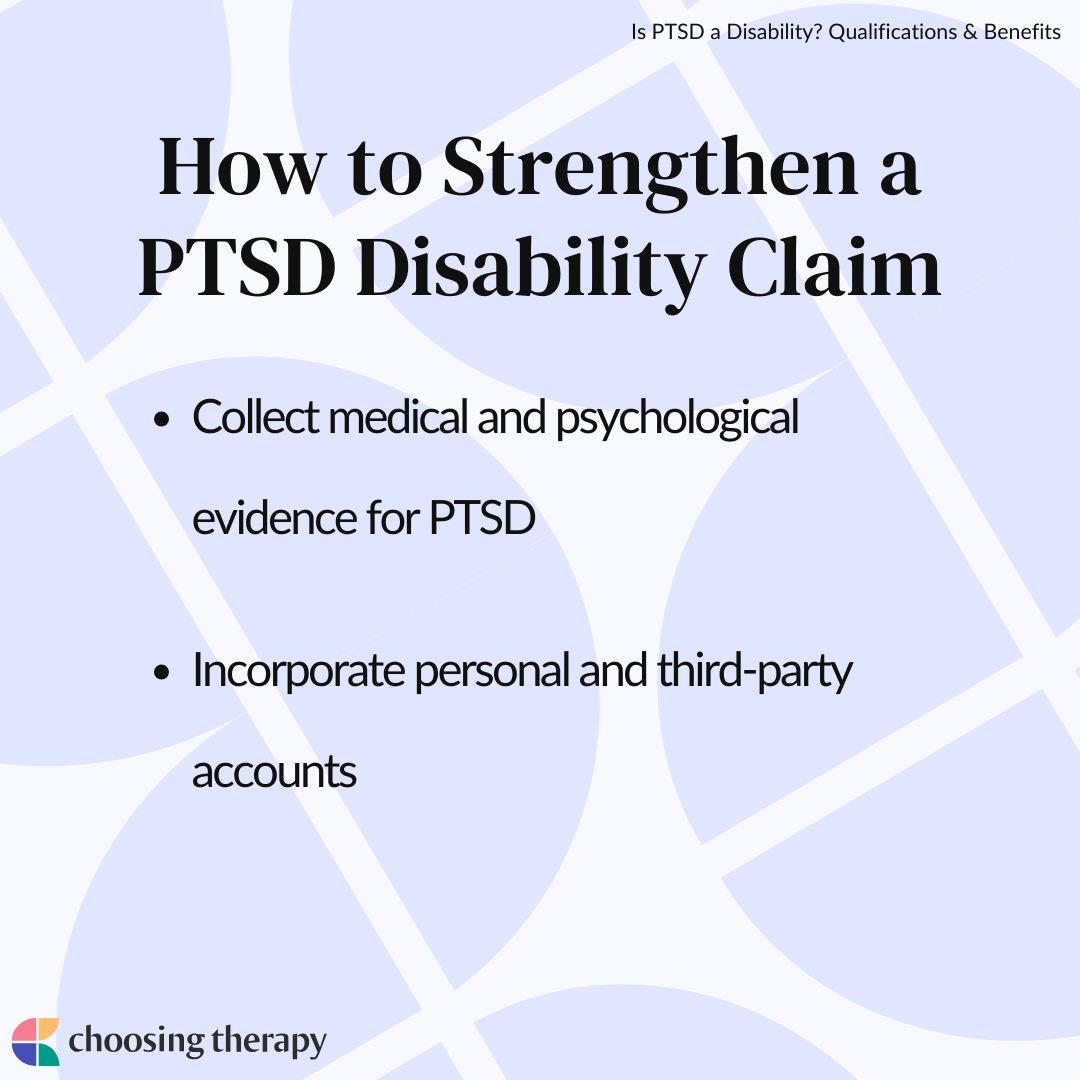Post-traumatic stress disorder (PTSD) occurs after an exposure to actual or threatened death, serious injury, or violence.1 PTSD is characterized as a disability in the Blue Book of the Social Security Administration, Section 12.15 (Trauma and Stressor Related Disorders).2 To receive disability from the Social Security Administration, strict criteria must be met, including documentation of the diagnosis, limitations in functioning, and significant impact on day-to-day life.
Online Therapy For PTSD Therapy can help you live a better life. BetterHelp provides convenient and affordable online therapy, starting at $65 per week. Take a Free Online Assessment and get matched with the right therapist for you!
Is PTSD a Disability?
The Americans With Disabilities Act (ADA) does not contain a list of conditions that warrant a disability. However, it does contain a definition of what constitutes a disability. According to the ADA, a person is considered to have a disability if there is a physical or mental impairment that “substantially limits one or more major life activities, a record of such an impairment, or is regarded as having an impairment.”3 PTSD, because of its effect on the brain, meets this criterion.
No two people will respond to a traumatic incident in the same way. The part of the brain that stores trauma (the amygdala) has no sense of time and no language. Therefore, when there is a sensory experience (for example a smell or some other “input”) the brain reacts as if the trauma is occurring right now. This reaction results in hypervigilance, difficulty sleeping, flashbacks, and avoidance. Many people also report numbness/failure to connect with others.
Types of Disability Benefits for PTSD
Three federal government programs offer benefits for disabilities. These programs include Supplemental Security Income (SSI), Social Security Disability Insurance (SSDI) and Medicare.
Supplemental Security Income (SSI) for PTSD
Supplemental Security Income (SSI) is for people who are over 65 years old or are blind or have a disability (regardless of age) AND have little to no income or resources.4 To qualify for SSI, a person would need to have a significant impact from the effects of PTSD and meet the income/disability criteria. Once approved for SSI, you will also qualify for Medicaid (in most states).4 Benefits begin the first full month after the date the claim was filed or the date found eligible for SSI.4
Social Security Disability Insurance (SSDI) for PTSD
To qualify for Social Security Disability Income (SSDI), an individual must have sufficient work credits AND a disability.4 A person would need to have a significant impact from the effects of PTSD and meet the work credit/disability criteria. SSDI benefits begin after the sixth full month of disability.4 The six-month period begins with the first full month after the date the Social Security Administration rules the disability began.4
Work credits require that you work long enough and recently enough.5 The Social Security Administration bases work credits on total yearly wages/self-employment income.5 You can earn up to four credits each year but the income amount that equals a credit changes each year.5 Additionally, the number of work credits needed to qualify is based on how old you were when the disability began.5 According to the SSA, “Generally, you need 40 credits, 20 of which were earned in the last 10 years ending with the year your disability begins.”5
Medicare
Once an individual reaches retirement age (as early as 65 or as late as 67, depending on birth year) or twenty-four months after disability is determined in the case of SSDI, an individual qualifies for Medicare. Medicare is a health insurance plan that covers physical and mental health services. There are limitations to the plans and what is covered is dependent upon the plan you choose. Mental health services are generally covered under Medicare as long as you seek services from a participating provider. Some Medicare plans offer coverage for long-term care needs.
Eligibility Criteria for PTSD Disability Claims
Eligibility criteria for disability qualification are stringent. Having a PTSD diagnosis does not automatically qualify you for disability.
Five questions are asked when someone applies for federal benefits, including:5
- Are you working? If so, you will not likely qualify for benefits.5
- Is your condition severe? To qualify, PTSD must be considered severe. There must be significant limitations to your ability to do basic work-related tasks for at least twelve months.5
- Is your condition considered a disabling medical condition? PTSD is a trauma and stressor-related disorder that affects brain function and is therefore considered a potentially disabling medical condition.5
- Can you do the work you previously did? If you can, you would not qualify for disability.5
- Can you do any other type of work? If so, you would not qualify for disability.5
How to Apply for Disability Benefits With PTSD
Disability claims can be made by calling the Social Security Administration or online. The length of time for determination varies. Medical records will be requested and, for some providers, records are not sent promptly. Some applications are denied the first time because of incomplete records or because the records do not provide the necessary information to make a positive determination. For this reason, it can be helpful to obtain the help of an attorney.
Help For Trauma / PTSD Talk Therapy – Get help recovering from trauma from a licensed therapist. Betterhelp offers online therapy starting at $60 per week. Free Assessment Online PTSD treatment – Talkiatry offers personalized care from psychiatrists who listen and take insurance. Get matched with a specialist in just 15 minutes. Take our assessment
Necessary Documentation
To apply, you will need some pertinent information. You will need to provide your full name, date, and place of birth, marriage and/or divorce information, names and birth dates for your dependent children, military service information, employment information for the last two years, direct deposit information, and alternate contact information.7 You will also need to provide information about your diagnosis, how it affects you, and proof of the effects.7
Some necessary forms of documentation for applying for PTSD disability benefits include:
- Medical records release
- Information about doctors, healthcare professionals, hospitals, and clinics (including the names, addresses, phone numbers, patient ID numbers if applicable, and dates of examinations and treatments). You want to ensure that you have included psychiatric evaluations, therapy notes, and any other PTSD-specific documentation.
- Names and dates of medical tests you have had and who sent you for them (including mental health assessments for PTSD)
- Names of medications (prescriptions and over-the-counter supplements/medications), reason for medication, and who prescribed them
- Information about participation with vocational rehabilitation services, workers’ compensation, public welfare benefits, prison/jail records, if you have an attorney and other medical records
- Job history information including start and stop dates and contact information for the employer
- Date your medical condition began to affect your ability to work
- Type of jobs (up to 5) that you had in the 15 years before you became unable to work because of your condition
- Type of duties you did on the longest job you had
- Education and training (including the date of the highest grade completed) and any special training that you’ve had (name of school/program, city, and state)
- Name of trade school or vocational school and date completed7
Where to Apply
You can apply for disability benefits at your local Social Security office or online by visiting https://secure.ssa.gov/iClaim/dib.Children and those who are already receiving benefits cannot apply online.6 You also cannot reapply online if you applied within the last sixty days.6 To apply online, you will need to create a “My Social Security Account,” if you do not already have one.7 Applications are also taken by phone by calling 1-800-772-1213 from 7 a.m. to 7 p.m. Monday through Friday.6 If you are deaf or hard of hearing, you can call TTY at 1-800-325-0778.6
How to Strengthen a PTSD Disability Claim
A PTSD claim can be strengthened by providing therapy records and assessments as well as psychiatric records. The Social Security Administration does not provide information specific to PTSD application success. However, in 2022, about one in three applications were approved.8
Collect Medical & Psychological Evidence for PTSD
Your provider’s records need to include how your PTSD symptoms limit your ability to perform any work duties. It is also important that your records reflect the treatment that you have had and the impact of that treatment.
Incorporate Personal & Third-Party Accounts
Unlike other medical conditions, there is no objective measure such as X-rays or blood tests to diagnose PTSD. Therefore, personal narratives and third-party testimonies, such as from family members or employers are necessary to support a PTSD claim. These testimonies become the “evidence” of the severity of your condition.
Costs Associated With PTSD Disability Claims
There is no cost for a Social Security claim. However, there are costs associated with the claim, such as obtaining medical and psychological evaluations before the claim. These costs can vary from $100 to several thousand dollars, depending on the type of provider and the evaluation performed. Sometimes, the Social Security Administration requests a third-party evaluation. The cost of these evaluations is covered by the Social Security Administration, however, you are responsible for your transportation and your time.
Typically, costs for evaluations before the claim are due at the time of service. If you obtain legal support, attorneys will often provide an initial consultation free of charge. Some attorneys work for an hourly rate and some attorneys will accept a percentage of your disability back pay as their fee.
Online Therapy For PTSD Therapy can help you live a better life. BetterHelp provides convenient and affordable online therapy, starting at $65 per week. Take a Free Online Assessment and get matched with the right therapist for you!
Risks of Filing for PTSD Disability Without Legal Support
Legal support helps improve your likelihood of providing the information necessary for a positive outcome in your disability claim. An attorney can review records to ensure that the criteria are present and explicitly noted in your documentation. The attorney can also provide questionnaires to your providers that explicitly ask for the information that is necessary for a positive outcome. Often, providers do not have the impact documented as explicitly in their records as it needs to be for a positive outcome, although the provider would agree that the limitations are present. Because of this, you are more likely to receive a denial without the services of an attorney.
What Happens After You Apply for PTSD Disability Benefits
After you submit your application, the Social Security Administration will confirm receipt of your application, either electronically or by mail.6 They will then review the application and contact you if they need more information or documentation.6 They will also inform you if other family members may be able to receive benefits, or if you may be able to receive benefits based on another person, such as your spouse or your parent.6 They will then process the application and mail the decision to you.6 The Social Security Administration may take up to six months to issue their decision.8
What to Do if Your PTSD Disability Claim is Denied
If your disability claim is denied, you have two options. You can stop the process or you can reapply. The appeal process can be long and cumbersome.
Common Reasons for Denial
According to Steven Perrigo, fewer than 40% of people who apply will receive benefits.9 The top three reasons for application denial are 1) Work history requirements aren’t met; 2) Not having thorough documentation; and 3) Not knowing that there is a right to a representative.9
The Appeal Process for PTSD Disability Claims
The Social Security Administration denies approximately 67% of initial applications.9 The first appeal is called “reconsideration.”9 During reconsideration, only about 8% of former workers will be approved.8 The next appeal is at the hearing level and only 2% of appeals will succeed.8 In both of these processes additional information must be submitted that shows the necessary missing criteria are met.
Treatment Options & Support for PTSD
To qualify for disability for PTSD, you will need to show that you attempted PTSD treatment and the outcome of those treatments. Treatment options include PTSD medication, psychotherapy, support groups, and body-based therapies.
Online Therapy For PTSD Therapy can help you live a better life. BetterHelp provides convenient and affordable online therapy, starting at $65 per week. Take a Free Online Assessment and get matched with the right therapist for you!
Medication
Antidepressants, anti-anxiety medications, and sleep aids can be helpful for the symptoms of PTSD.
Common medications used to treat PTSD include:
- Antidepressants: Depression is a common symptom of PTSD. Treating the depression associated with PTSD does not resolve the PTSD but could help with motivation, body pain, and sadness. Two of these medications, paroxetine (Paxil) and Sertraline (Zoloft) have been FDA-approved for treating PTSD.
- Anti-anxiety medications: Many people with PTSD report feeling “on edge” or “irritable.” Medication for anxiety can help treat these symptoms. Some anti anxiety medications include benzodiazepines like Xanax or Klonopin. However, because of substance abuse concerns, these medications can be challenging to obtain.
- Sleep aids: Many people with PTSD find it challenging to fall asleep or stay asleep. Your medical provider may choose to prescribe something to help you sleep such as Ambien or Trazadone.
Psychotherapy & Support Groups
Medications alone will not cure PTSD. Psychotherapy and support groups can help manage the symptoms of PTSD. Therapy groups are useful because they help you not feel so alone and they can be a place to share feelings about the traumatic event.
Therapy for addressing trauma may include:
- Eye movement desensitization and reprocessing therapy (EMDR): EMDR for PTSD focuses on memory centers of the brain. Dual attention stimuli (DAS) lessen the effects of PTSD triggers and teach the brain to reorient and realize that the person is safe.10
- Trauma-focused cognitive behavioral therapy (TF-CBT): TF-CBT is an offshoot of Cognitive Behavioral Therapy. This talk therapy helps to change negative, unhelpful thoughts, emotions, and behaviors.11
- Cognitive processing therapy (CPT): CPT is also a type of cognitive behavioral therapy for PTSD and has been studied extensively by the United States Military. It helps to “modify and challenge unhelpful beliefs related to trauma.”12
- Brainspotting: Brainspotting involves locating a fixed point with the eyes (a “brainspot”) to process trauma. It does not require that you talk about the experience but rather uses the body’s natural responses to resolve PTSD symptoms.13
- Prolonged exposure therapy (PE): Prolonged exposure therapy exposes individuals to their traumatic memories, feelings, and situations to teach the brain that the memories and cues are not dangerous and therefore do not need to be avoided.14
- Online therapy options: Online therapy is an option for the treatment of PTSD and trauma. It is convenient and many people with PTSD feel that it offers comfort and safety because it can be done from home. Online therapy may not be appropriate for everyone.15
Where & When to Find Professional Help for PTSD
If you are filing for disability benefits, you likely already have a diagnosis and a therapist. However, if you are not happy and want to break up with your therapist or you have not been seeing a therapist regularly, you may want to search for another therapist. Therapy is beneficial for the treatment of symptoms and possibly the resolution of PTSD. It is important to find a therapist that specializes in trauma. An online therapist directory can be helpful because you can “filter” your search by specialty, in-person or telehealth options, and the insurance accepted.
In My Experience
To help our readers take the next step in their mental health journey, Choosing Therapy has partnered with leaders in mental health and wellness. Choosing Therapy is compensated for marketing by the companies included below. Online Therapy BetterHelp – Get support and guidance from a licensed therapist. BetterHelp has over 25,000 therapists who provide convenient and affordable online therapy. Take A Free Online Assessment and get matched with the right therapist for you. Free Assessment Online PTSD treatment Talkiatry offers personalized care from psychiatrists who listen and take insurance. Get matched with a specialist in just 15 minutes. Take our assessment. Treatment For Trauma & OCD Half of people diagnosed with OCD have experienced a traumatic life event. The chronic exposure to stressful situations, such as ongoing bullying, or an abusive relationship can lead to the development of OCD symptoms. NOCD therapists specialize in treating both trauma and OCD and are in-network with many insurance plans. Visit NOCD Trauma & Abuse Newsletter A free newsletter for those impacted by trauma or abuse. Get encouragement, helpful tips, and the latest information. Sign Up Choosing Therapy Directory You can search for therapists by specialty, experience, insurance, or price, and location. Find a therapist today.Additional Resources
How Does ERP Help With Intrusive Thoughts? Obsessive compulsive disorder (OCD) is a psychiatric condition marked by the presence of obsessive thoughts, images, doubts, or urges, followed by compulsive behaviors or acts aimed at easing the distress caused by the obsession. While the content of the obsessions can take many forms, they are always repetitive, persistent, involuntary, and intrusive, and they often result in a great deal of anxiety for the person experiencing them. 9 Types of Therapy for Trauma Experiencing trauma can result in distressing and debilitating symptoms, but remind yourself that there is hope for healing. If you or a loved one is suffering from the aftereffects of trauma, consider seeking therapy. Trauma therapy can help you reclaim your life and a positive sense of self. 










